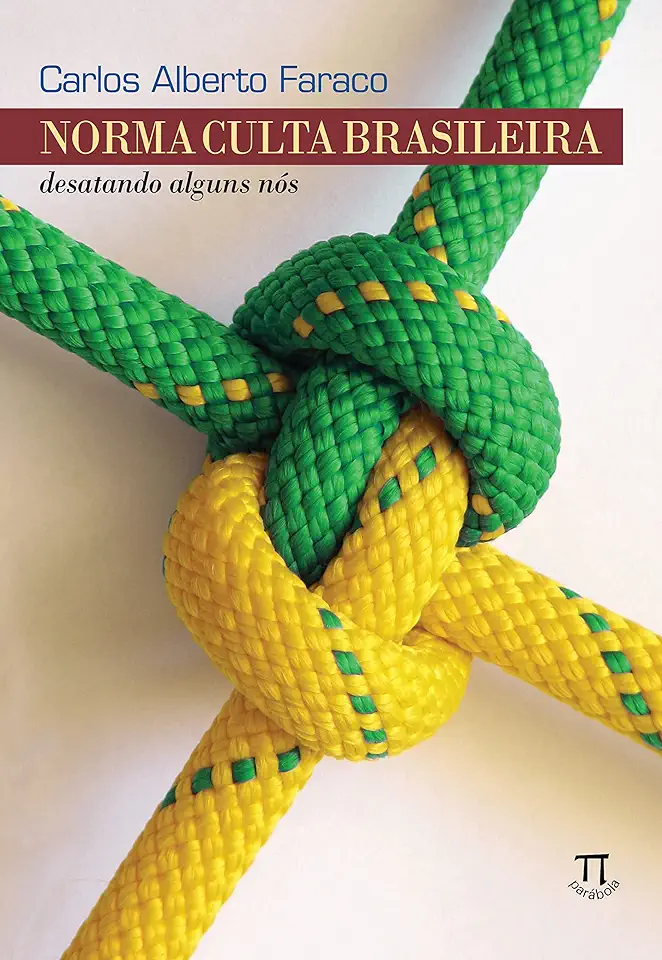
Brazilian Standard Language - Untying Some Knots - Carlos Alberto Faraco
Brazilian Standard Language - Untying Some Knots
By Carlos Alberto Faraco
A Comprehensive Guide to the History and Evolution of Brazilian Portuguese
In his groundbreaking book, "Brazilian Standard Language - Untying Some Knots," renowned linguist Carlos Alberto Faraco delves into the fascinating history and evolution of Brazilian Portuguese, shedding light on the complex factors that have shaped the language into its current form. With meticulous research and engaging storytelling, Faraco unravels the intricate knots that have tied the language to its colonial past, revealing the vibrant tapestry of influences that have contributed to its unique identity.
Unveiling the Roots of Brazilian Portuguese
Faraco begins his exploration by tracing the origins of Brazilian Portuguese back to the arrival of Portuguese colonizers in the 16th century. He vividly portrays the linguistic landscape of colonial Brazil, where the Portuguese language encountered a diverse array of indigenous languages and African dialects, leading to a rich exchange of words, sounds, and grammatical structures. Through detailed analysis, Faraco demonstrates how these early encounters laid the foundation for the distinct characteristics that set Brazilian Portuguese apart from its European counterpart.
The Shaping of a National Identity
As Brazil gained independence in the 19th century, the need for a unifying national language became paramount. Faraco chronicles the efforts of intellectuals, educators, and politicians to establish a standardized form of Portuguese that would serve as a symbol of national identity and facilitate communication across the vast territory. He highlights the challenges faced in reconciling regional variations and social dialects, ultimately leading to the emergence of the Brazilian Standard Language (Portuguese: Língua Portuguesa Padrão) in the 20th century.
Exploring Linguistic Diversity and Variation
Despite the establishment of a standard language, Faraco emphasizes the remarkable linguistic diversity that persists within Brazil. He takes readers on a captivating journey through the country's regions, showcasing the vibrant dialects and unique expressions that reflect the cultural heritage and local identities of each area. From the melodic accents of the Northeast to the rhythmic speech of the South, Faraco celebrates the richness and vitality of Brazilian Portuguese in all its forms.
The Influence of Literature and Popular Culture
Faraco also explores the profound impact of literature and popular culture on shaping the Brazilian Standard Language. He analyzes the contributions of renowned writers, poets, and musicians who have left an indelible mark on the language, enriching its vocabulary and expressions. From the literary masterpieces of Machado de Assis to the samba lyrics of Cartola, Faraco demonstrates how these cultural icons have influenced the way Brazilians speak and perceive their language.
A Call for Linguistic Tolerance and Inclusivity
Throughout the book, Faraco emphasizes the importance of linguistic tolerance and inclusivity. He argues against linguistic prejudice and discrimination, advocating for the recognition and appreciation of all forms of Portuguese spoken in Brazil. Faraco encourages readers to embrace the linguistic diversity that makes Brazil such a vibrant and fascinating country, fostering a sense of unity and pride in the nation's linguistic heritage.
Conclusion
"Brazilian Standard Language - Untying Some Knots" is a must-read for anyone interested in the history, evolution, and diversity of Brazilian Portuguese. Carlos Alberto Faraco's masterful work provides a comprehensive understanding of the language's intricate tapestry, untying the knots that bind it to its past and revealing its dynamic nature. With its engaging narrative and wealth of insights, this book is an essential resource for linguists, educators, and anyone passionate about the Portuguese language and Brazilian culture.
Enjoyed the summary? Discover all the details and take your reading to the next level — [click here to view the book on Amazon!]